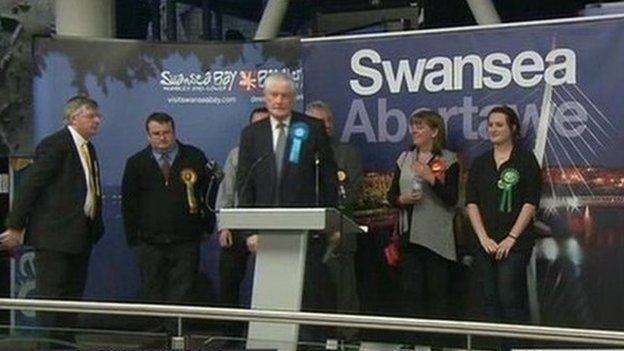Welsh Assembly election: Conservative devolution vision
- Published
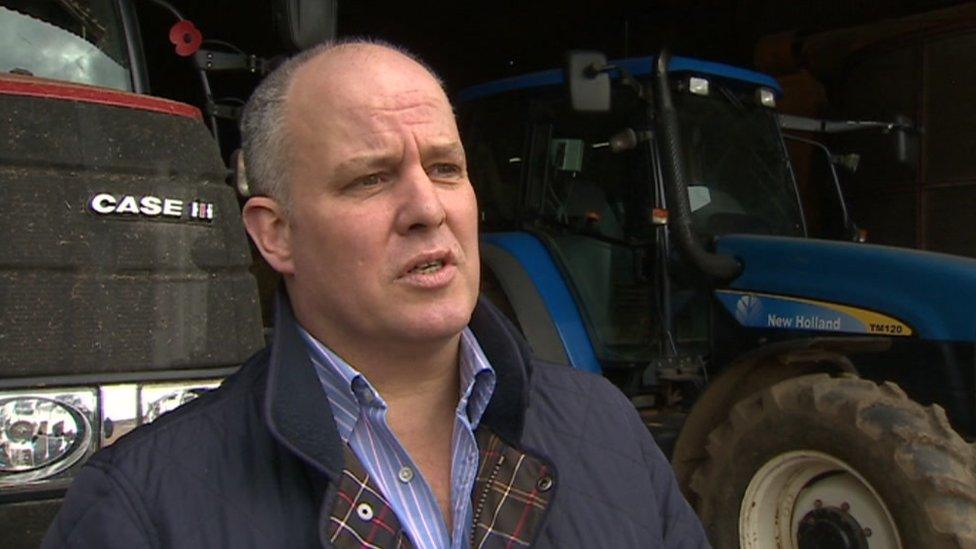
Andrew RT Davies claims he is the only alternative to Carwyn Jones as first minister
The electoral statistics suggest the Conservatives have enjoyed a significant if gradual improvement in fortunes since 1999 - but the numbers only tell part of what has been a sometimes bumpy and often colourful journey back to the front line of Welsh politics.
Having opposed devolution in 1997 and having lost every one of their Welsh MPs in that year's general election, expectations were low for the Conservatives in the first devolved elections two years later. The party won nine of the 60 seats - a modest total, but a platform from which to rebuild.
The group was led by former MP and Welsh Office Minister Rod Richards, whose pugnacious style enlivened the assembly's early proceedings. But Mr Richards stepped down as leader after being accused of assaulting a young woman. Subsequently cleared, external, he stood down as an AM in 2002.
His successor, law professor Nick Bourne - these days a peer and UK government minister - set about healing the rifts caused by the devolution referendum.
He saw little point in retaining the party's anti-devolution stance, gradually moving the party (despite some internal resistance) to the position it now holds - in favour of a Welsh parliament with the fiscal powers to reduce taxes and boost enterprise.
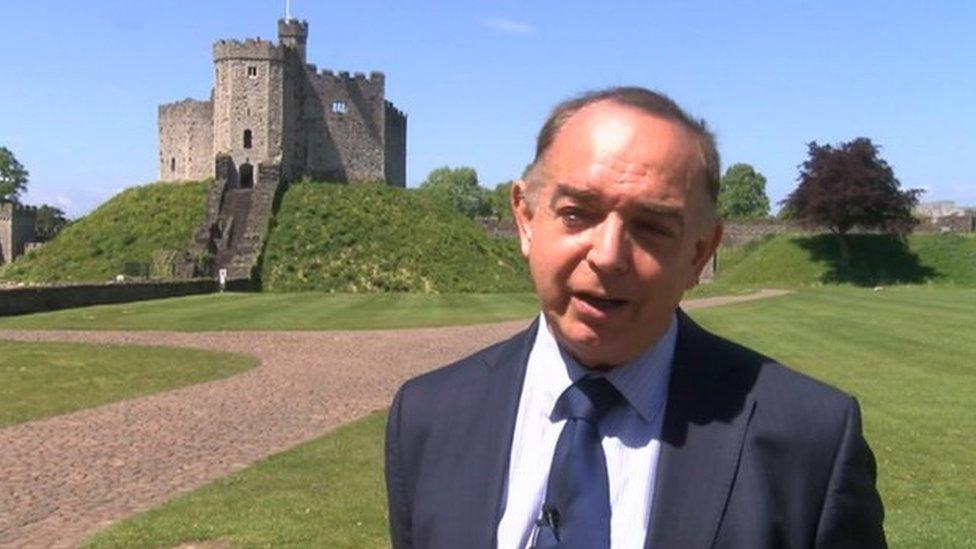
Nick Bourne led the Tories to take a more positive view of devolution
So committed was Mr Bourne to his project that he came within a whisker of leading the Conservatives into government in Cardiff Bay in 2007.
Having increased the party's share of the seats to 11 in the 2003 election, the Tories went one better four years later, winning 12.
A three-way coalition with Plaid Cymru and the Liberal Democrats, external was on the cards - years of behind-the-scenes work meant a joint programme for government was put together relatively easily. But reluctance in the other two parties meant the grand plans eventually came to nothing.
There was a silver lining - Plaid Cymru's decision to form a coalition with Labour instead meant the Conservatives cemented their position as the main opposition party in Cardiff Bay and, with the party's fortunes reviving across the UK, the 2011 assembly election saw the Conservatives win 14 seats, overtaking Plaid as the second largest party.
The gains came at a cost, as Mr Bourne lost his seat on the regional list for Mid and West Wales.
The subsequent leadership contest saw Andrew RT Davies defeat Nick Ramsay; Mr Davies continued Mr Bourne's direction of pushing for greater devolution as a means of implementing a Conservative vision for the economy and public services, albeit in a larger-than-life style than that favoured by his predecessor.
Having enjoyed some success in highlighting perceived failures in Welsh Labour's record on the NHS, and making dramatic gains in last year's general election, the Welsh Conservatives are hoping for further gains in May.
But with relations with Plaid Cymru having cooled considerably since 2007, it seems that getting into government will remain a tall order.
- Published11 March 2016
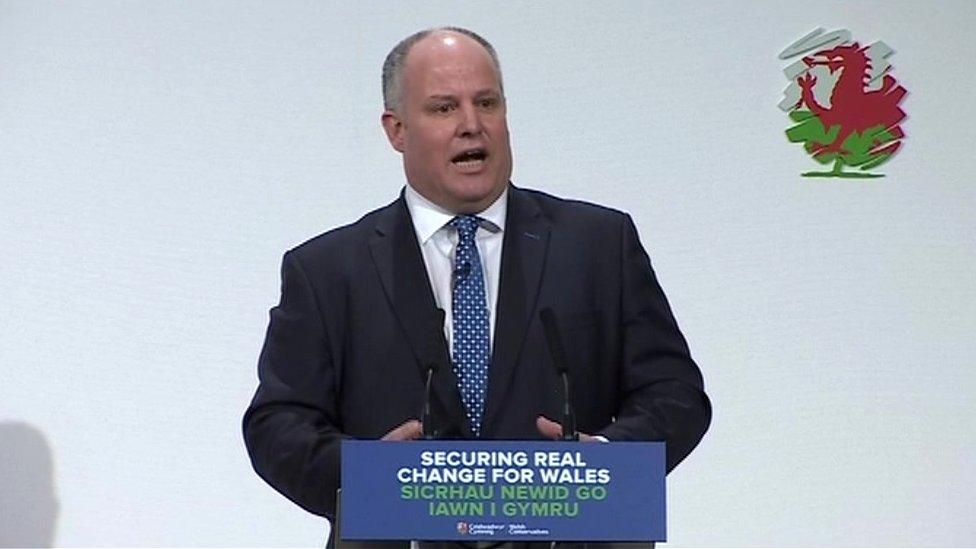
- Published26 November 2015
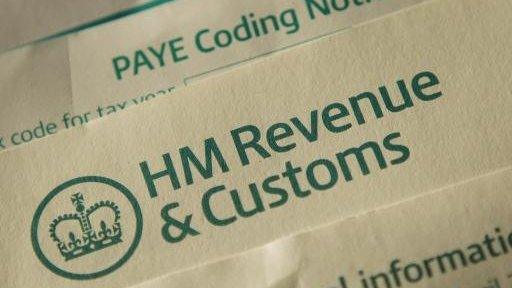
- Published8 May 2015
